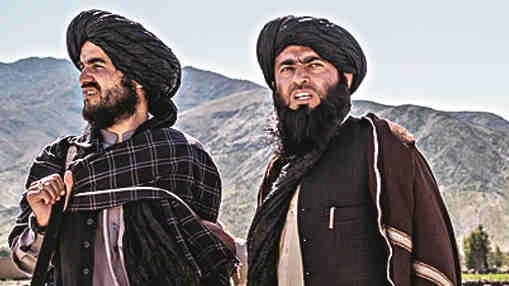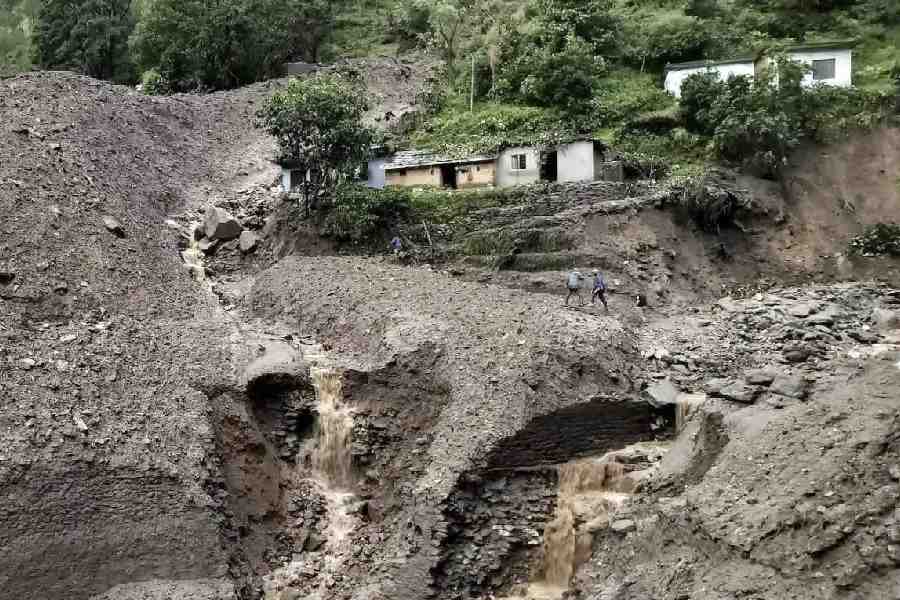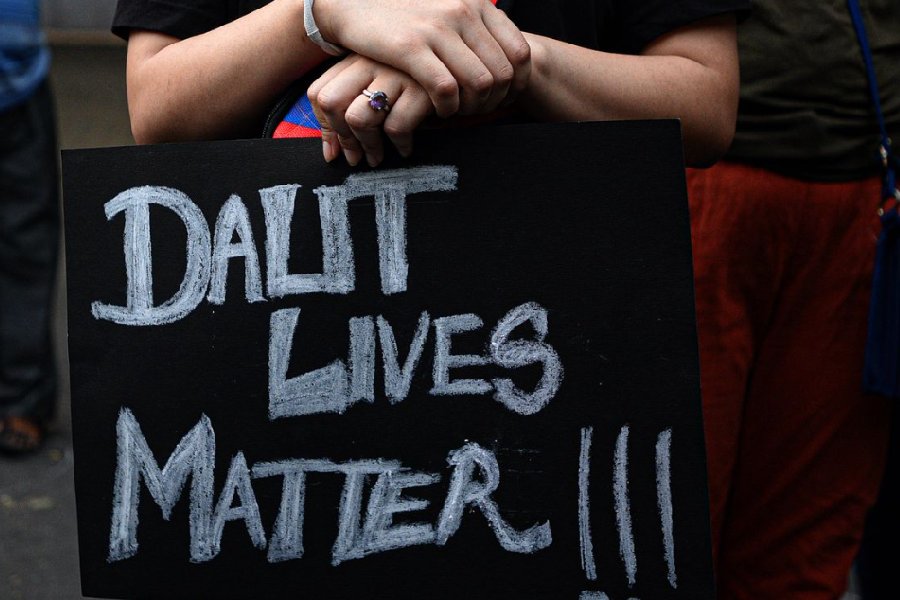Last Friday, after their commander paid a final courtesy call on the Afghan president, Ashraf Ghani, the combat troops of the United States of America evacuated their main operational base in Bagram on the outskirts of Kabul. Within a day, British troops and forces from other countries of the North Atlantic Treaty Organization stationed in different provinces began their own journey out of Afghanistan. As the British defence secretary told the House of Commons on July 5, the American withdrawal had left Britain in a “very difficult position to continue” the mission in Afghanistan that began after the terror attacks on US cities on September 11, 2001.
The fallout of the departure of foreign forces that had been stationed in Afghanistan for the past 20 years was immediate. Jubilant over having worsted yet another superpower, the Taliban forces overcame the feeble resistance of the demoralized Afghan National Army. Already in control of more than half of rural Afghanistan, the Taliban are in the process of acquiring control of the regional capitals. There are suggestions that, barring a dramatic turnaround, Kabul may fall to the Taliban in the next six months. In the gloomy assessment of the former president, Hamid Karzai: “Look at the scene. We are in shambles. The country is in conflict. There is immense suffering… Those who came here 20 years ago in the name of fighting extremism and terrorism not only failed to end it but, under their watch, extremism has flourished. That is what I call failure.”
As a last-ditch attempt to prevent Afghanistan reverting to the medievalism practised under the rule of Mullah Omar, the authorities have tacitly sanctioned the re-establishment of tribal militias to supplement the ANA, which has been adversely affected by desertions and a string of military failures. However, having disbanded as a military force for at least a decade, the non-Pashtun constituents of the erstwhile Northern Alliance may find that they may have left it too late. It will require the emergence of another charismatic Ahmad Shah Massoud plus a great deal of military resources for the Taliban offensive to be checked in at least half of Afghanistan. As of now, the Taliban are leaving nothing to chance and, indeed, concentrating their military advance on the non-Pashtun areas, thereby pre-empting the resistance.
The disarray in the opposition to the Taliban within Afghanistan mirrors the erosion of the global resolve. Apart from India, which held out till the last but without the capacity to do much to bolster the anti-Taliban opposition within the country — New Delhi still lacks any meaningful connect with the Taliban — all the countries of the West, plus Russia and China, have opened their lines of communication with the Taliban, hoping desperately that this version of the Taliban is not going to be a carbon copy of the one forged by Mullah Omar.
As of now, there is slim evidence that the Taliban, they are poised to reclaim the lost Emirate, has changed course. The final report of the Afghanistan Study Group released in February 2021 to outline the US’s possible ‘New Approach’ to the Afghan mess after the withdrawal was a case of American policymakers trying to put a gloss on a clear defeat. It took comfort in the assessment — born out of the US-Taliban agreement in Doha — that the “Taliban are not an international terrorist organisation, and there is no evidence that they have any intention to attack the US.” At the same time, it seemed to agree with the report of the Taliban sanctions the monitoring team presented to the Security Council in May 2020 that “Relations between the Taliban, especially the Haqqani network and Al Qaeda remain close, based on friendship, a history of shared struggle, ideological sympathy and intermarriage.” The Study Group report concluded that “This persistent linkage explains, in part, why the Taliban resisted the US demand that they renounce and severe their ties with Al-Qaeda, and instead committed only to ensuring that Al-Qaeda is no longer a threat to the interests of the United States and its allies in areas controlled by the Taliban.”
The faith in a ‘reformed’ Taliban that has shed its earlier medievalism and jihadi impulses has occasionally been used to justify the US exit from Afghanistan. The Study Group imagined that the Taliban has “softened” its approach: “While still demanding the removal of the current government and the establishment of a new constitution, the group often refers to an ‘Islamic foundation’ for the state that does not involve a Taliban monopoly of power. This Islamic foundation may countenance greater flexibility on education, health, women’s rights and human rights than was the case in the 1990s, but it would likely entail some restrictions on these rights.” It is noteworthy that the belief in a humane “Islamic foundation” hasn’t found reflection in the organization of life in areas where the Taliban have re-acquired control — at least this is what Western media accounts suggest.
Going by the Study Group report and Jo Biden’s evasive non-answer to a pointed question on the withdrawal from Bagram, one conclusion is inescapable: the withdrawal from Afghanistan is a clear admission of defeat. The grim consequences of a renewed civil war in Afghanistan and the possible establishment of an extremist regime committed to theological precepts of unending wars to establish the faith are known and acknowledged by those who committed themselves to the regime change project in 2001. That the determination to do something about it has been replaced by tacit acceptance — as long as it doesn’t affect Europe and the US — is likely to bolster the belief in Islamist circles that the West is morally degenerate and politically vulnerable. Whether this will enhance the internal security of Europe and the US or make it more vulnerable is an issue worth considering.
Interestingly, the two big gainers from the departure of the US and Nato forces from Afghanistan are likely to be China and Pakistan. There are reports to suggest that China is anxious to cut a deal with the Taliban, with Pakistan playing a key role. The terms of this understanding would involve the Taliban stopping all material assistance to Muslims in Xinjiang in return for big Chinese investments — through Pakistan — in the mineral industries and infrastructure of Afghanistan, an engagement that would also fill existing gaps in Beijing’s Belt and Road Initiative.
There are serious implications of recent developments in Afghanistan on India’s national security. First, despite occasional strains in relationship, Pakistan will enjoy a privileged status in Taliban-held Afghanistan. Second, the role that China seeks to play in the economy of Talibanized Afghanistan is certain to enhance Islamabad’s clout in Kabul. Third, in the absence of a common border, there are obvious limitations to India’s capacity to intervene effectively in Afghanistan unless Iran and Tajikistan are on board. During the previous Taliban regime, India offered military and financial assistance to the Northern Alliance and kept alive the resistance movement. Despite the Alliance’s present state of unpreparedness, this strategy will have to be revived. However, on this occasion, it must involve greater coordination with the US and European countries whose willingness to assist anti-Taliban forces is likely to involve a measure of detachment. Finally, India’s capacity to play a role in Baluchistan, the Pashtun belt on both sides of the Durand Line and among the Tajiks, Uzbeks and Hazaras in Afghanistan will necessitate higher levels of information and local expertise. The expertise and commitment that were once the hallmarks of the Indian Political Service is worth replicating.










